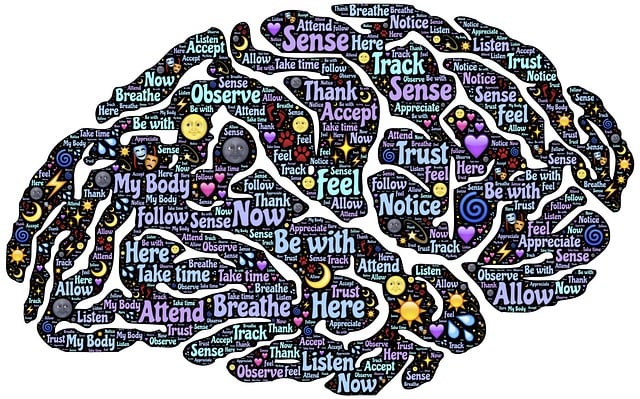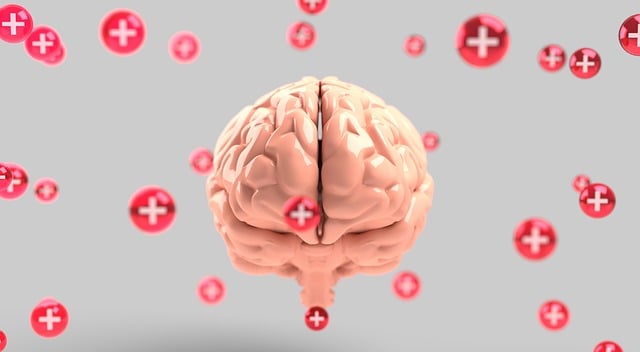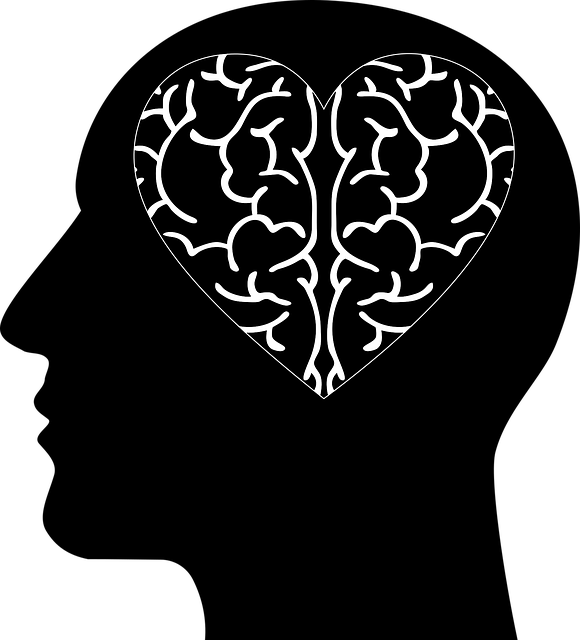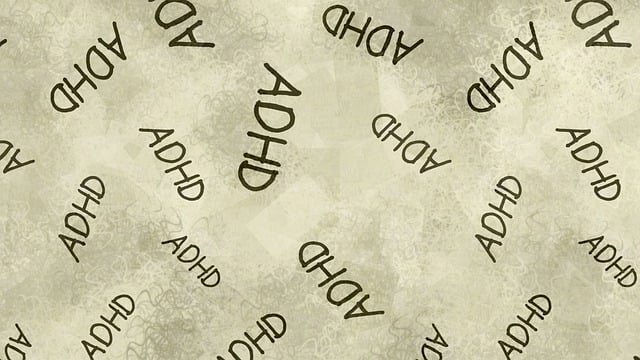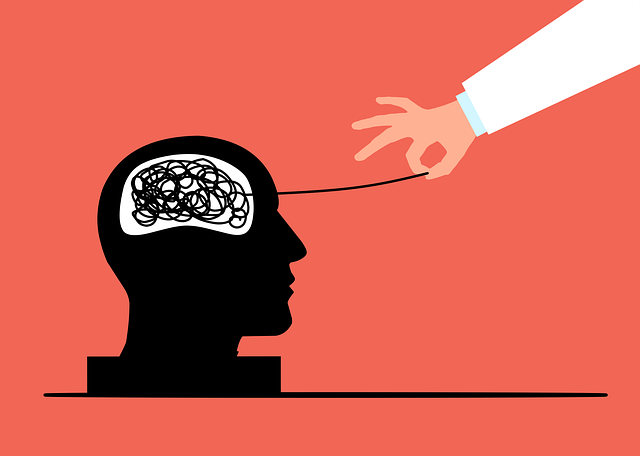Media representation of mental health, particularly Functional Neurological Disorder (FND), significantly impacts public understanding. Accurate portrayals, diverse narratives, and accessible trauma support services foster inclusivity. The Mental Wellness Podcast Series Production can challenge stereotypes by highlighting success stories like Lone Tree FND Therapy, empowering individuals through coping mechanisms and mood management. Creators should consult experts, integrate mind over matter principles, and focus on emotional intelligence to portray nuanced characters, promoting a more compassionate understanding of mental health issues in society.
In today’s media landscape, accurate representation of mental illness is more crucial than ever. This article explores the challenge of depicting mental health in a responsible and nuanced manner, delving into the pervasive impact of stereotypes and misconceptions. We present ‘Lone Tree Functional Neurological Disorder Therapy’ as a case study, highlighting innovative approaches to enhancing positive mental health portrayals. By examining these strategies, we aim to guide creators towards more authentic and beneficial media narratives for audiences worldwide.
- Understanding Mental Illness Representation in Media
- The Impact of Stereotypes and Misconceptions
- Promoting Accurate Depictions: A Challenge for Creators
- Lone Tree Functional Neurological Disorder Therapy: A Case Study
- Strategies to Enhance Positive Mental Health Portrayals
Understanding Mental Illness Representation in Media

Media representation of mental illness plays a significant role in shaping public understanding and perceptions. It’s crucial to recognize that portrayals can either perpetuate stereotypes or foster empathy and awareness. When depicted accurately, media can offer valuable insights into various conditions, from depression and anxiety to more complex disorders like Functional Neurological Disorder (FND). For instance, a story about someone navigating FND through Lone Tree Functional Neurological Disorder Therapy might provide an opportunity for viewers to grasp the challenges associated with this often-misunderstood condition.
Accurate representation is essential, but it’s also vital to consider cultural sensitivity in mental healthcare practice. Different cultures have unique perspectives on mental health, and media has the power to either embrace these differences or reinforce harmful generalizations. Incorporating diverse narratives and ensuring trauma support services are accessible within media platforms can contribute to a more inclusive understanding of mental illness. Additionally, portraying effective coping mechanisms and strategies for mood management can empower viewers dealing with similar struggles.
The Impact of Stereotypes and Misconceptions

The media’s portrayal of mental illness often perpetuates stereotypes and misconceptions that can have a profound impact on society’s understanding and acceptance of those dealing with such conditions. When mental health is depicted in a simplistic, sensationalized manner, it risks reducing complex disorders to mere cliches, further isolating individuals who might be struggling in silence. For instance, showing a person with depression as solely sad or hopeless reinforces the common yet false notion that happiness is the absence of sadness, ignoring the multifaceted nature of this condition.
These stereotypes can hinder people from seeking help, especially when they fear judgment or don’t recognize their symptoms. They may also discourage those who have already embarked on their mental wellness journey, as constant media representations of extreme cases can make recovery seem unattainable. Thus, it is imperative to challenge these narratives and present a more nuanced view, potentially through innovative formats like the Mental Wellness Podcast Series Production, which offers an opportunity to educate and inspire without contributing to harmful stereotypes, especially when featuring success stories that highlight the potential for growth and recovery, even in cases of functional neurological disorder therapy.
Promoting Accurate Depictions: A Challenge for Creators

Creating media content that accurately represents mental illness is a significant challenge for creators. Often, popular culture perpetuates stereotypes and misinformed narratives, which can be detrimental to individuals living with conditions such as functional neurological disorder (FND). A lone tree in a storm metaphorically represents the struggle of those navigating their mental health journey—a complex landscape where every gust of wind brings new challenges.
To promote accurate depictions, creators should consider delving into the intricacies of these disorders and consulting experts like therapists specializing in FND. Integrating mind over matter principles and focusing on emotional intelligence can help portray characters with mental illness as multidimensional individuals rather than one-dimensional stereotypes. Social skills training might also be incorporated to showcase how individuals can learn to manage and thrive despite their struggles, ultimately fostering a more compassionate understanding of mental health issues in society.
Lone Tree Functional Neurological Disorder Therapy: A Case Study

Lone Tree Functional Neurological Disorder Therapy is a pioneering initiative that offers a unique perspective on addressing mental illness representation in media. This case study focuses on a comprehensive approach to managing neurological disorders, emphasizing the importance of tailored therapy and support. By providing one-on-one mental wellness coaching programs, the therapy aims to enhance individuals’ resilience and prevent burnout, which are crucial aspects of overall mental health.
The program’s success lies in its ability to challenge conventional media portrayals of neurological conditions. Through individualized treatment plans, patients are empowered to navigate their journeys with increased understanding and self-acceptance. This approach not only promotes positive resilience building but also encourages individuals to seek help without the stigma often associated with mental health issues, as commonly seen in media representations.
Strategies to Enhance Positive Mental Health Portrayals

Media has a significant impact on shaping societal perceptions about mental health. To challenge negative stereotypes and promote understanding, intentional strategies are crucial for enhancing positive mental health portrayals. One effective approach is to feature characters with diverse mental health conditions, ensuring their stories are nuanced and authentic. This includes showcasing recovery journeys, highlighting resilience, and emphasizing that mental illness is not a defining trait but a phase many individuals navigate successfully.
Incorporating realistic representations of therapy, such as Lone Tree Functional Neurological Disorder Therapy, can be powerful. Displaying characters engaging in therapy sessions, participating in activities like art or music therapy, and demonstrating the process of building inner strength and coping mechanisms can educate viewers while fostering empathy. Additionally, organizations specializing in stress management workshops and social skills training can collaborate with media producers to ensure accurate and helpful representations of support systems, further enriching narratives and contributing to a more compassionate understanding of mental health.
Mental illness representation in media has come a long way, but there’s still work to be done. By challenging stereotypes and promoting accurate depictions, creators can foster understanding and reduce stigma. The case study of Lone Tree Functional Neurological Disorder Therapy demonstrates the power of positive mental health portrayals. Moving forward, adopting strategies to enhance these representations is crucial for creating a more inclusive and supportive media landscape. Let’s continue to navigate this intricate issue with empathy and precision.




